Internet etiquette (Netiquette)
Internet etiquette (Netiquette) are established practices whose main purpose is to make the internet experience pleasant and suitable to all people. It is mainly concerned with issues to do with courtesy in communication over the internet (Miller 3).
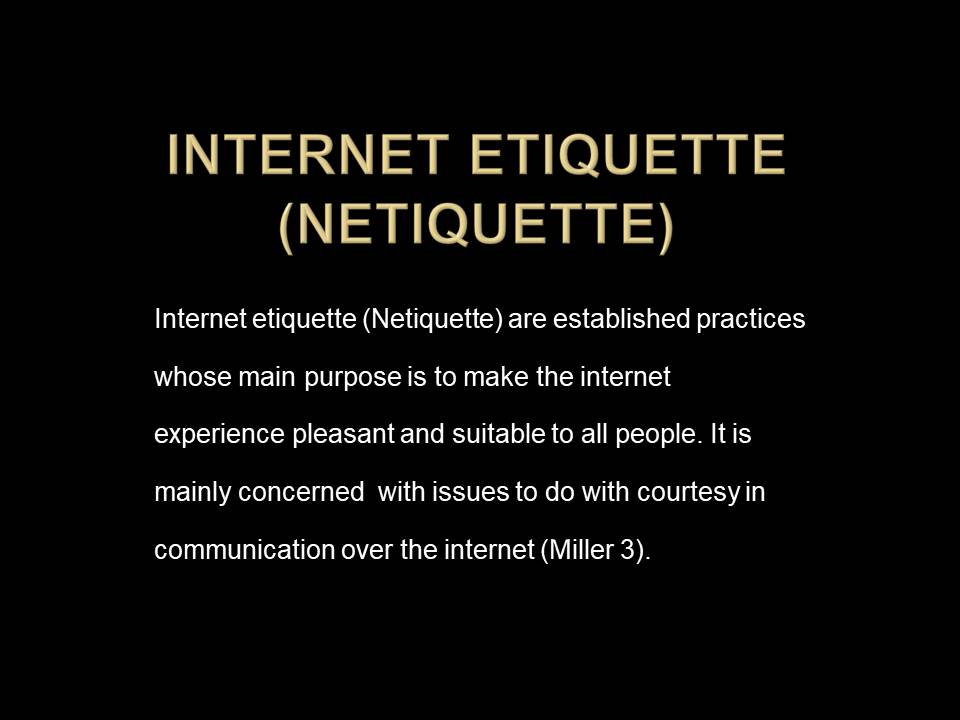
Netiquette Violation
Netiquette violation involves misbehavior or fraudulent behavior among people in the cyber space. It is the unacceptable behavior concerning internet communication and usage (McLaughlin and & Smith 90-11).
There are six main netiquette violation. These include flaming,spamming,plagiarism,impersonation,spidering and security violation.
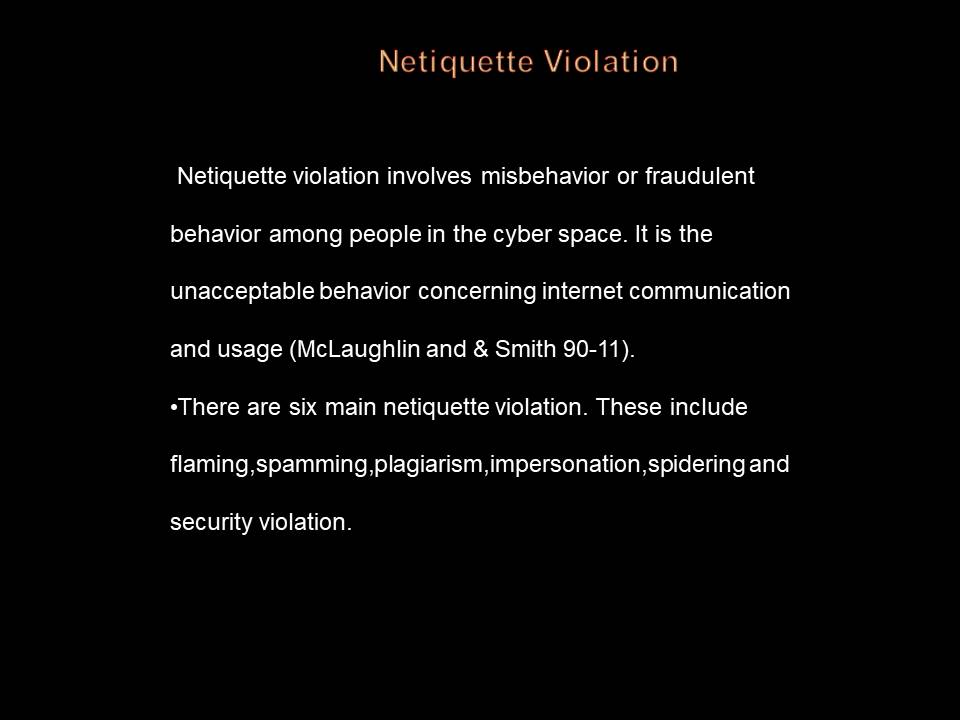
Flaming
A flame is a message intended to abuse another person through rude ,insulting or offensive language. Flaming is found to all kind of electronic communication. It may be found in social networks such as facebook, instant messaging, emails etc.
Example of flaming includes the conversation between Judd Apatow and Mark Brazil (Harper’s Magazine par. 10)
These emails contain flames because Mark brazil sends angry messages to Apatow accusing him of stealing his ideas in the past. The email messages are very unfriendly and insulting in some instances.
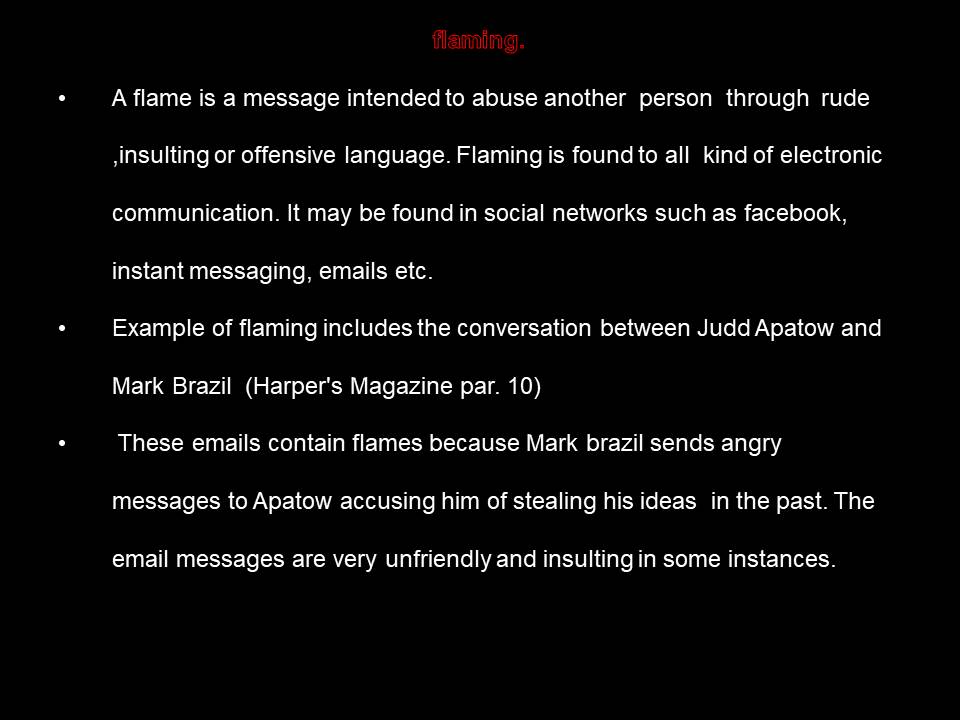
Spamming
Spamming involves sending an email meant for a single recipient to many other individuals.
It may involve a junk email send to individuals advertising something.
Example of spamming include the one sent in December 2000 about ‘IT training. tuition scholarships for college faculty, students and staff” (MIT par. 2)
This is a spam because it is addressed to many individuals, who were not meant to receive the email.
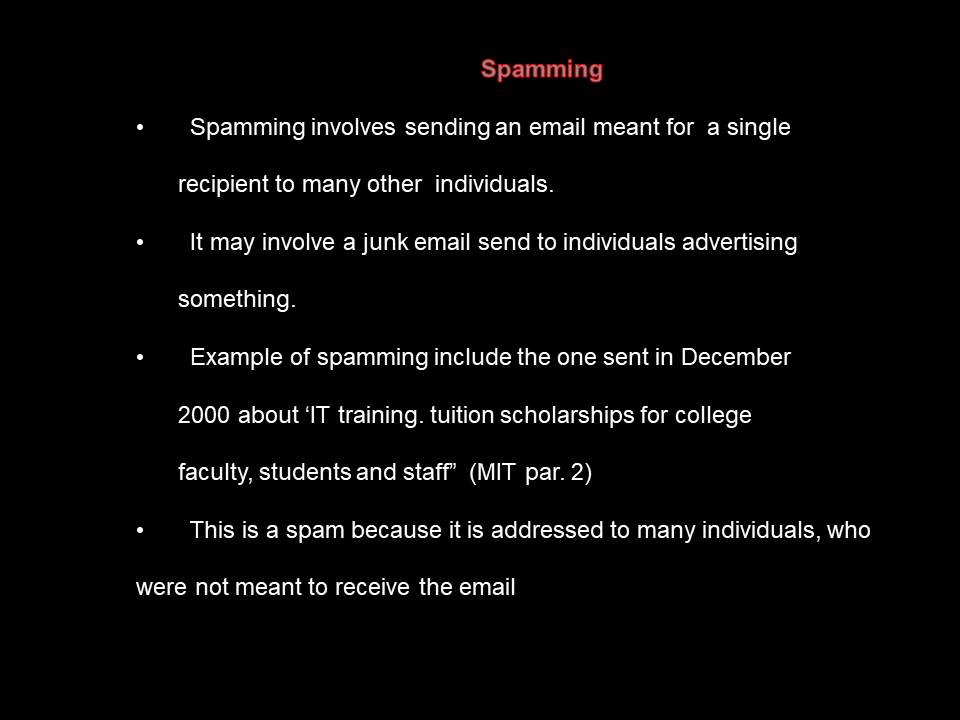
Plagiarism
This mainly deals with purchasing papers or already done assignments and essays from online sources.
Plagiarism is a wide concept that involve borrowing an idea of another person or making another person’s ideas look like your own.
It may be as a result of incorrectly acknowledging the paper obtained from the online sources.
Examples of plagiarism can be seen in the following site (K-State Honor & Integrity System par. 9 )
In this site there are various form of plagiarism including, word for word plagiarism and improper paraphrasing.
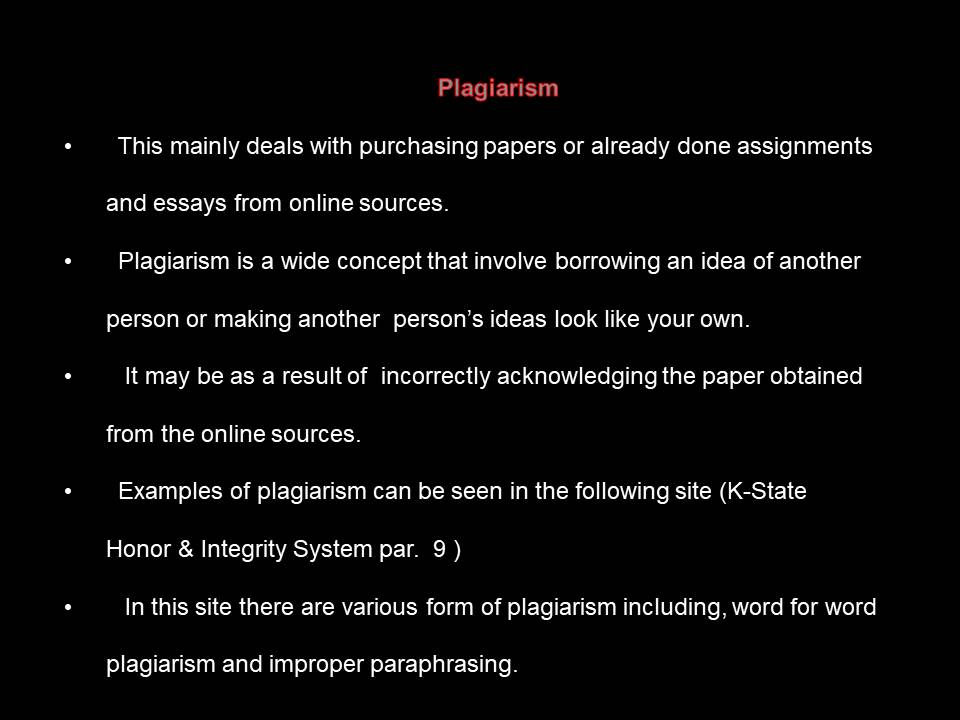
Impersonation
This is when people present themselves in the internet in a way that doesn’t really reflect them properly.
It happens when a person uses an identity of another person and involves in communication using real names of another person.
For example a student may present him/herself as a lecturer.
An example of impersonation is demonstrated by (Krawetz par.1). This is impersonation because people used resumes of others to get employment. However, it was later found that they don’t have the experience indicated in the resume.
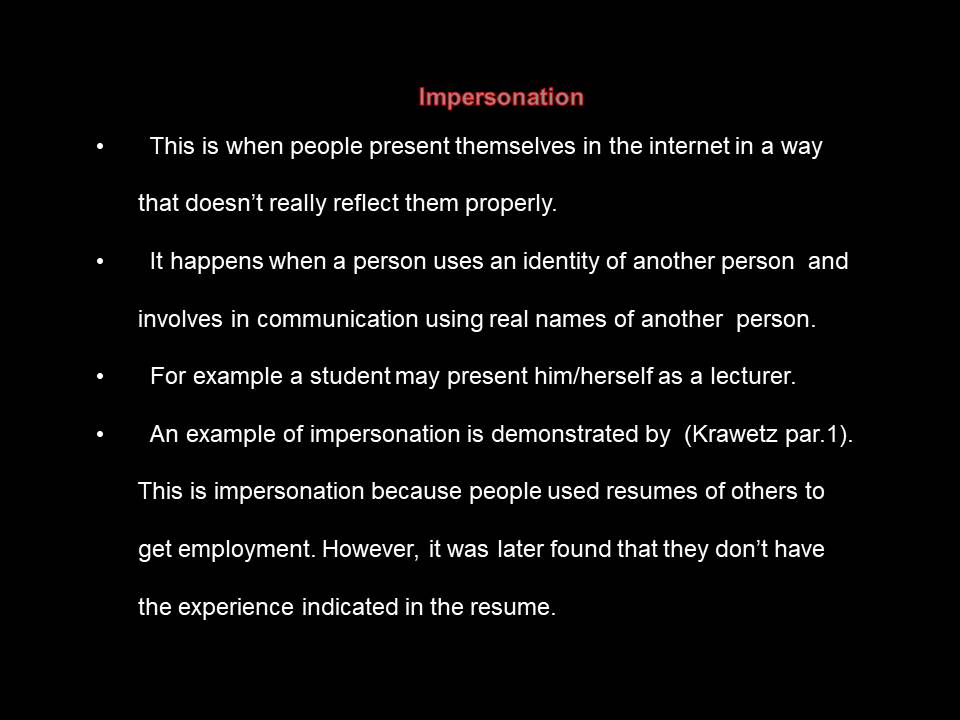
Spidering
This occurs when the key search engines ‘spider’ to dig around all websites in the process of creating their databases.
It is also referred to as web crawling.
A spider becomes spidering when the search engine aims at downloading pages and keeping them temporarily.
An example of spidering includes that of perl program to spider web servers. (Swish-e par. 2). This program is an example of spidering because it aims at crawling into various web servers.
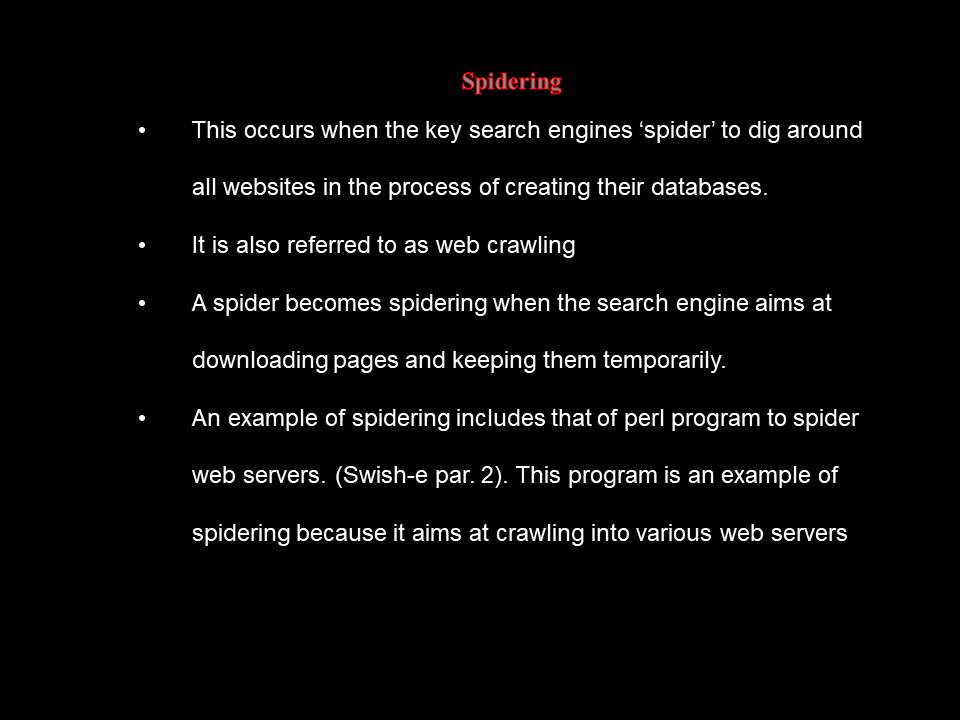
Security Violations
This involve engaging in activities that may compromise the security of the system you are using. Such activities may include hacking websites, sending viruses etc.
It involves breaching security regulation and procedures.
Security violation is demonstrate in (HowtoNetwork.net par. 4).
This is a security violation because it aims at restricting port security. This may compromise with the system security.
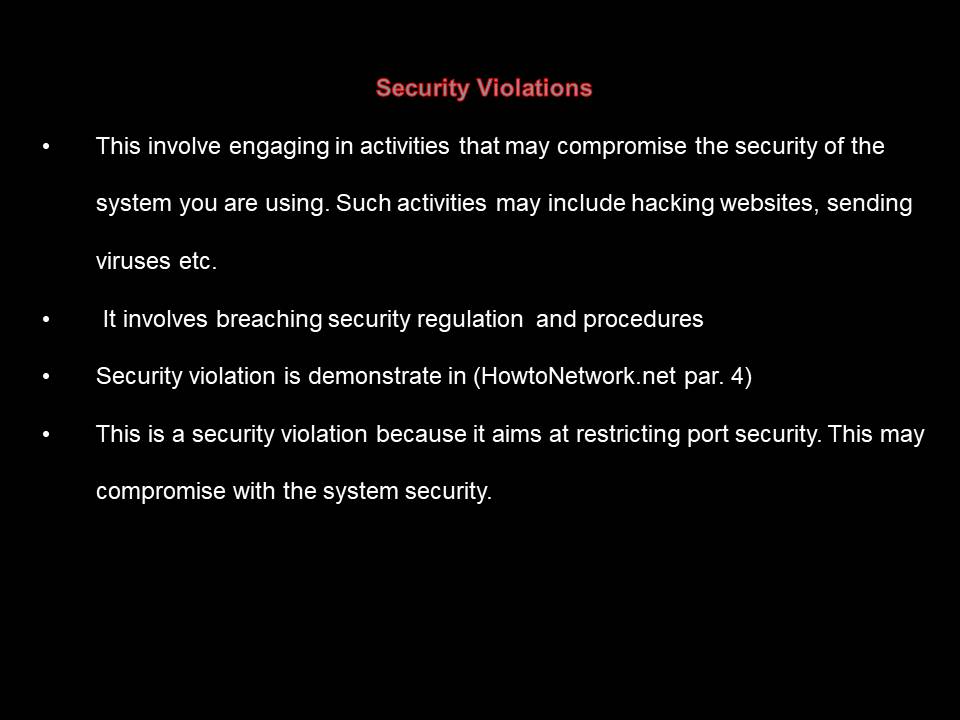
The potential harms of these violations
- Spam emails may infringe trademarks.
- Some spam emails contain pornographic contents which are harmful.
- Spam emails are always deceptive.
- Plagiarism may harm the plagiarist’s reputation.
- Legal actions may be taken against plagiarists.
- Students may be expelled from school due to plagiarism.
- Spidering is harmful since it breaches the privacy of websites.
- Impersonation can make one to be jailed or to pay a fine of up to $ 1000.
- Impersonation makes individuals to loose their reputation.
- It also shames the individuals who have been impersonated.
- Impersonation may cause losses to educational and businesses opportunities.
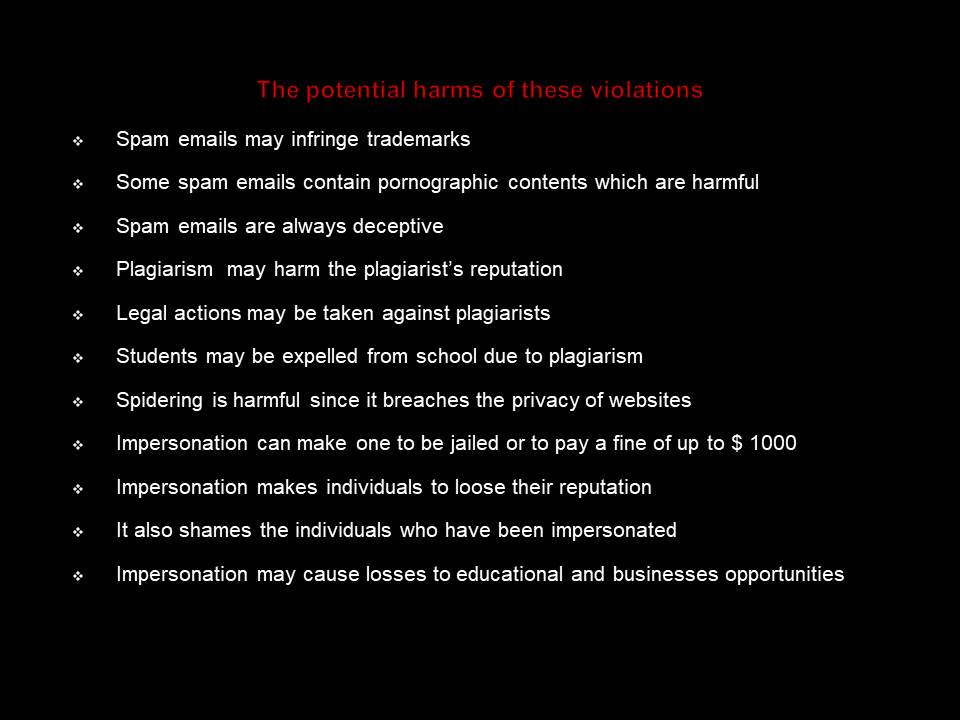
Works cited
Harper’s Magazine. Harper’s Magazine. 2002. Web.
HowtoNetwork.net. switchport port-security violation. 2012. Web.
Krawetz, Nael. Online Impersonations: No Validation Required. 2007. Web.
K-State Honor & Integrity System . K-State Honor & Integrity System . 2006. Web.
McLaughlin, Osborne and Smith, Bernard. Standards of conduct . Thousand Oaks, CA: Sage, Usenet. In Cyber society, ed. S. Jones, 90-111. 1995. Print.
Miller, Sum. E-Mail Etiquette: Do’s, don’ts, and disaster tales from People magazine’s internet manners expert. New York: Warner Books, 2001.Print.
MIT. Recent examples of spam that’s been sent to addresses at MIT. 2001. Web.
Swish-e. Swish-e. 2009. Web.